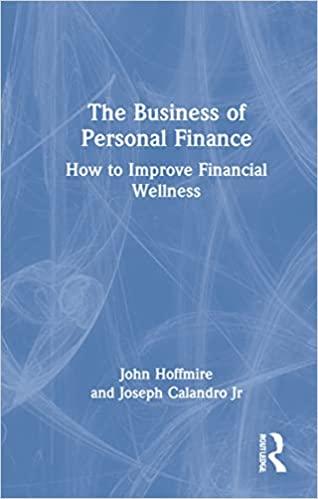Question
Polling from DHM Research shows that voters are far less happy with the citys trajectory today than at any time in the last 30 years,
Polling from DHM Research shows that voters are far less happy with the citys trajectory today than at any time in the last 30 years, when the firm began asking. A rock-bottom 8% of voters say Portland is headed in the right direction, down from 38% before the pandemic, and percentages that routinely hit the high 50s and mid 60s earlier this century.
Separate research by the Oregon Values and Beliefs Center has also turned up deep pessimism: 82% of Multnomah County residents surveyed in April reported being either somewhat or very worried about the future of their part of the state.
The dour mood poses an interesting question in an election year that nationally at least appears to be headed in Republicans direction: What happens when residents of the states most fervently Democratic city decide, like Blumenauer, that something is urgently wrong?
Its a question political consultants and candidates alike have been wrestling with ahead of the May 17 primary, with few surefire takeaways. While plenty of other cities are experiencing similar crises, political observers in both parties told OPB that the electoral environment this year feels uncertain and that Portlands woes pose a potentially major challenge for candidates closely associated with the city.
Its qualitatively different from any election I can think of, said John Horvick, senior vice president at DHM Research. Portlanders are mad at Portland. ... I feel like people are really late to understand how that dynamic is different. "
Hardesty and every other member of the Portland City Council have endorsed changes to the city charter that could fundamentally alter the citys increasingly rare form of government, in which commissioners are elected city-wide and get individual oversight of a portfolio of city agencies.
That commission form of governance has been targeted by reformers for decades but has increasingly become a focus of blame for what critical observers in both parties say is a mystifying inability to handle the challenges of the COVID-19 era. In his State of the City speech last week, Wheeler signaled hope that voters in November would do away with our current, systemically bigoted, red-tape ridden, antiquated form of city government.
In the recent poll by the Oregon Values and Beliefs Center, Multnomah County residents of all political stripes reported deep concerns. Of Democrats, 78% said they were somewhat or very worried about the future of the area, compared with 85% of Republicans and 88% of voters in another party or no political party at all. Similar breakdowns exist for survey participants who described themselves as liberal, moderate or conservative on economic and social issues.
For Davis, the discontent presents reason for concern. He believes that voters who are upset about the state of the city particularly its homelessness problem, but also crime, trash and government itself could vote emotionally, and possibly against their best interests.
Youre seeing people more frustrated than ever before with how things are going at all levels of government, he said. Along with that anger is also a great deal of unawareness and low knowledge about government and whos responsible. The danger, Davis said, is that voters throw out an incumbent, and the replacement is really not in any better position to effect change than the person they defeated.
Portlands tribulations could also ripple out into its suburbs, where Democratic candidates for statewide office have been able to count on robust support in recent years. If suburban voters are tired enough of what they see as poor stewardship by Democrats, Horvick believes that math could change.
How voter sentiment actually translates at the ballot box wont be firmly understood until Novembers general election, when Republicans are hopeful they can win control of the governors office for the first time in decades and believe they can dig out of superminority status in the Legislature.
The above makes an argument that Portlanders are angry with the City of Portland. Answer the questions below:
Question 1:
Much of the argument presented in this article was based on data collected through a survey conducted by DHM Research. What type of argument does this best represent?
Question 2:
Every argument has Claims (Premises) that support a Conclusion. What is the conclusion of the above argument?
Question 3:
Every argument has Claims (Premises) that support a Conclusion. Which of the following are premises? (Select all that apply)
Question 4:
What does this type of argument seek to do?
Step by Step Solution
There are 3 Steps involved in it
Step: 1

Get Instant Access to Expert-Tailored Solutions
See step-by-step solutions with expert insights and AI powered tools for academic success
Step: 2

Step: 3

Ace Your Homework with AI
Get the answers you need in no time with our AI-driven, step-by-step assistance
Get Started


